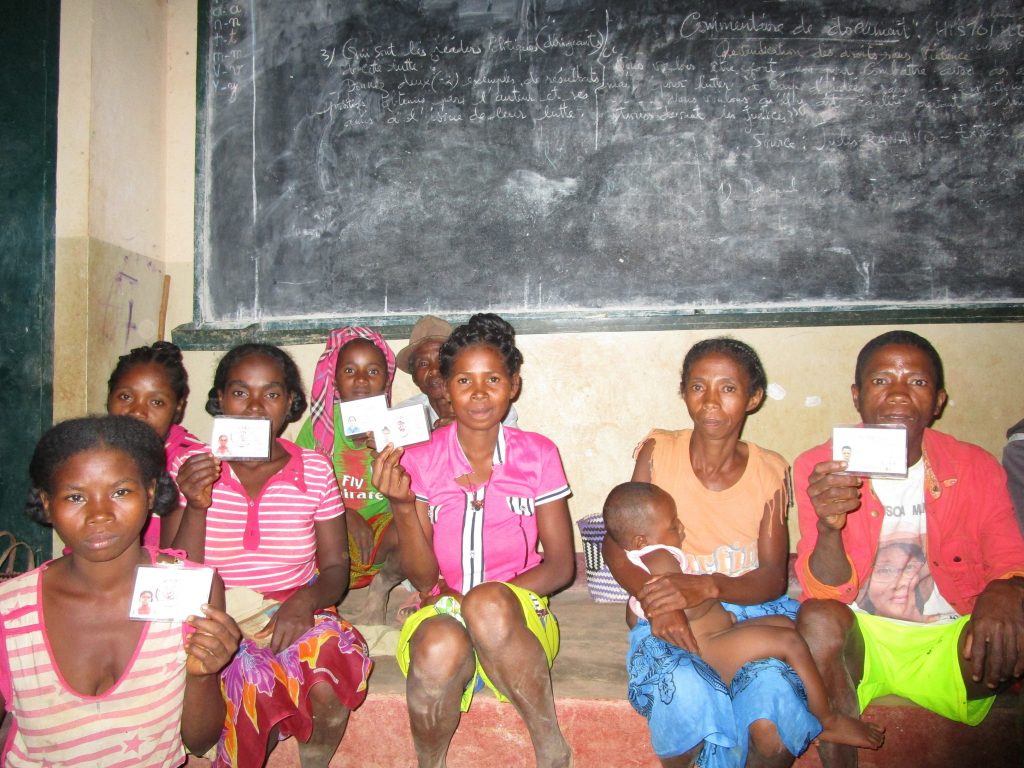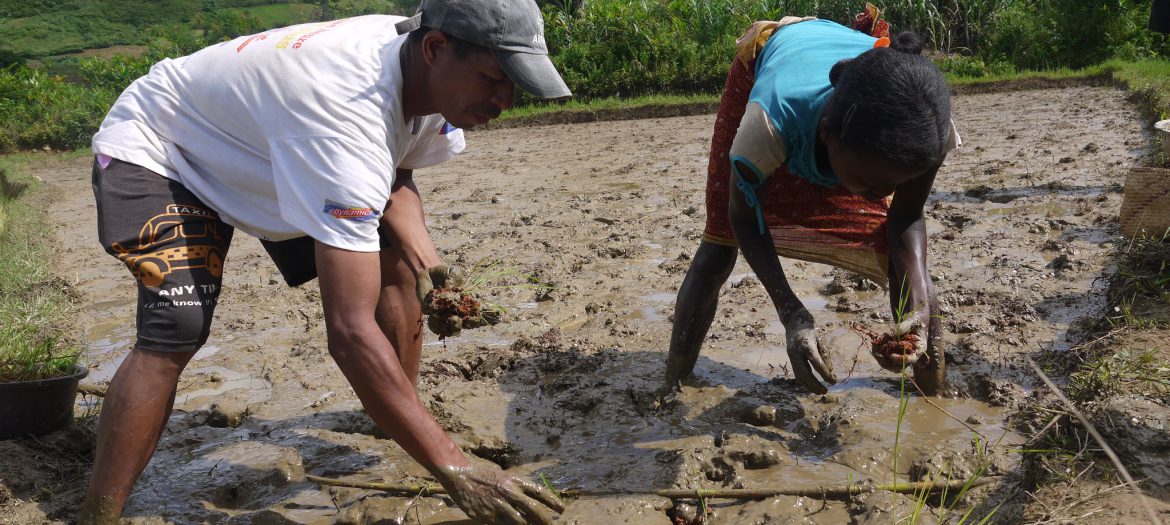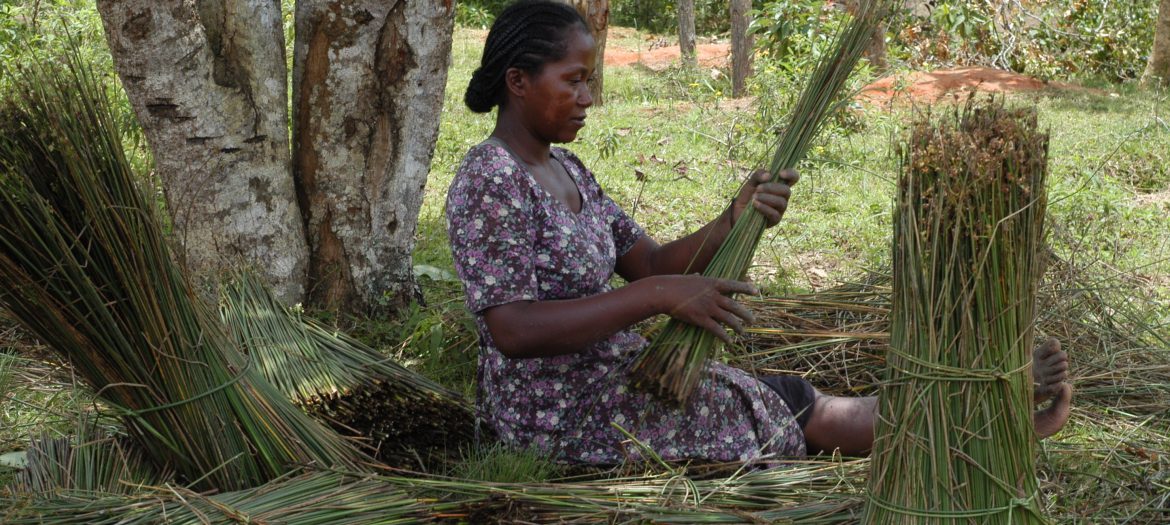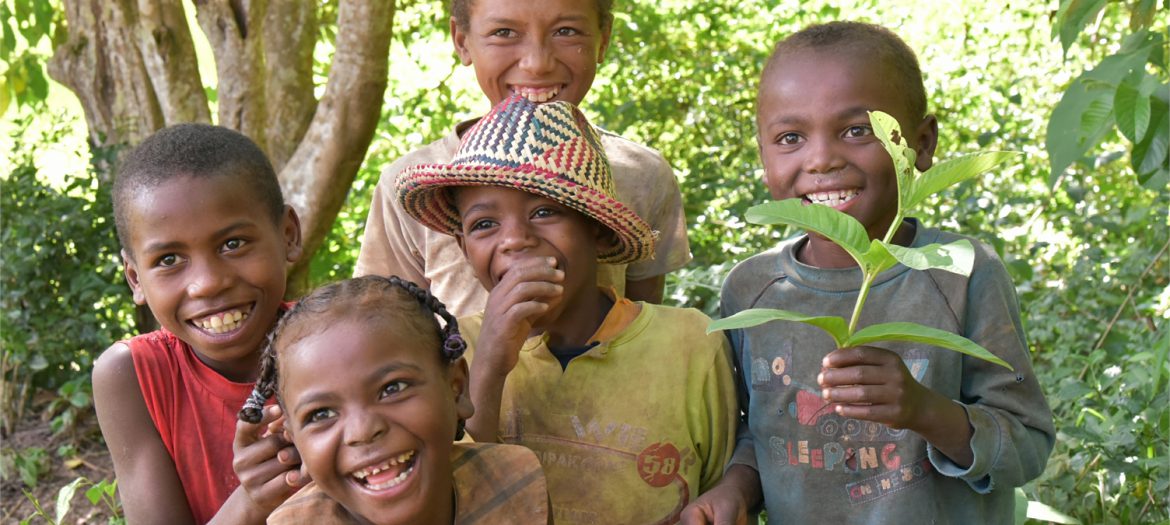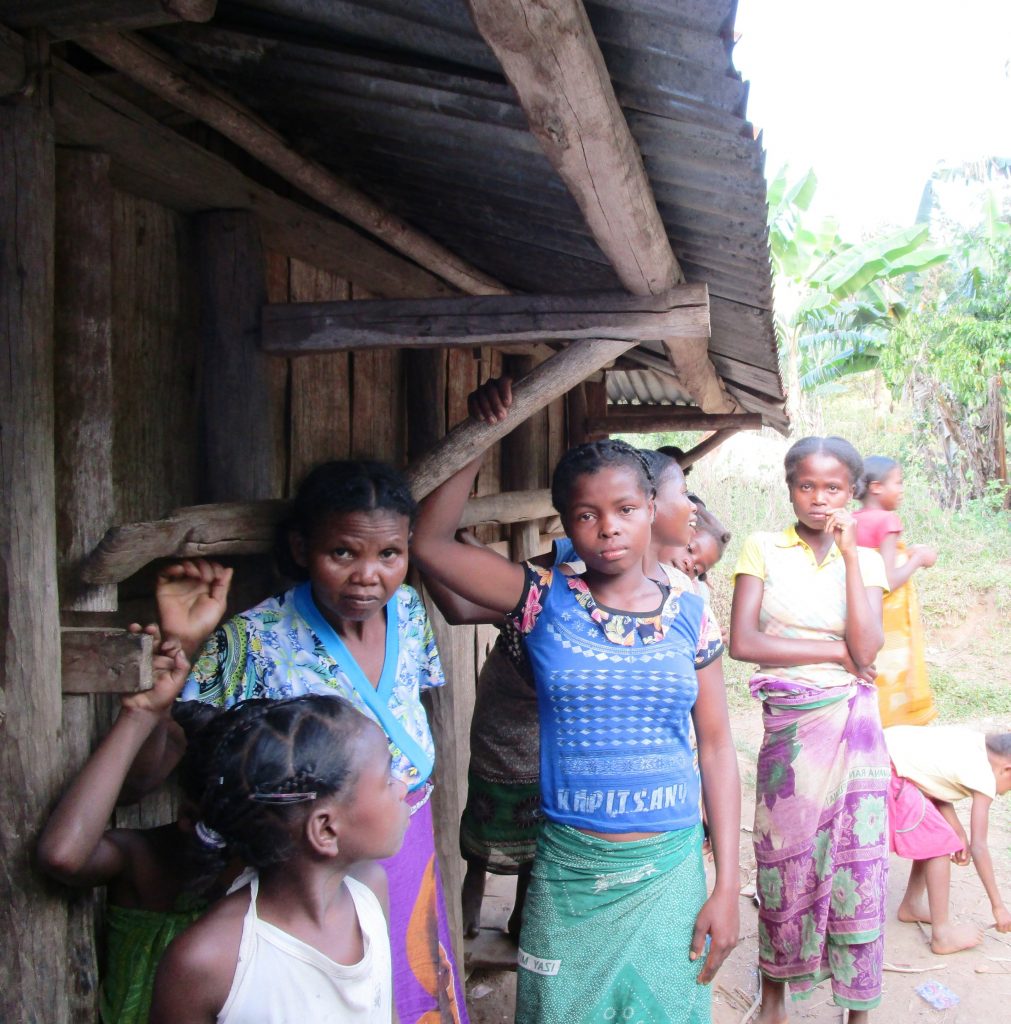
An estimated 30% of people in the Ikongo district do not have birth certificates and 40% do not have ID cards. Birth certificates, a prerequisite to having an ID card, are also necessary for children wishing to complete their Certificate of Primary Education (CEPE), without which they cannot continue in education. With the distance from health centres potentially over a day’s walk, home births are still prevalent and many fear getting a birth certificate for the child due to the threat of being fined. Whilst many are unaware of its importance, others simply have no idea what the process is – they fear being taken of advantage of by local authorities through signing documents that they are unable to read or understand. Financial barriers and the fear of ‘official authorities’ (e.g. health centres / mayor’s office …) remain a great barrier in these remote areas. Children of single mothers are also more unlikely to possess identity documents, since it is frequently the father’s role to apply for them.

ID cards, aside from being a fundamental right of Malagasy people, are hugely important for several reasons – including to travel, to vote, to get jobs outside of the agriculture industry or to own land.
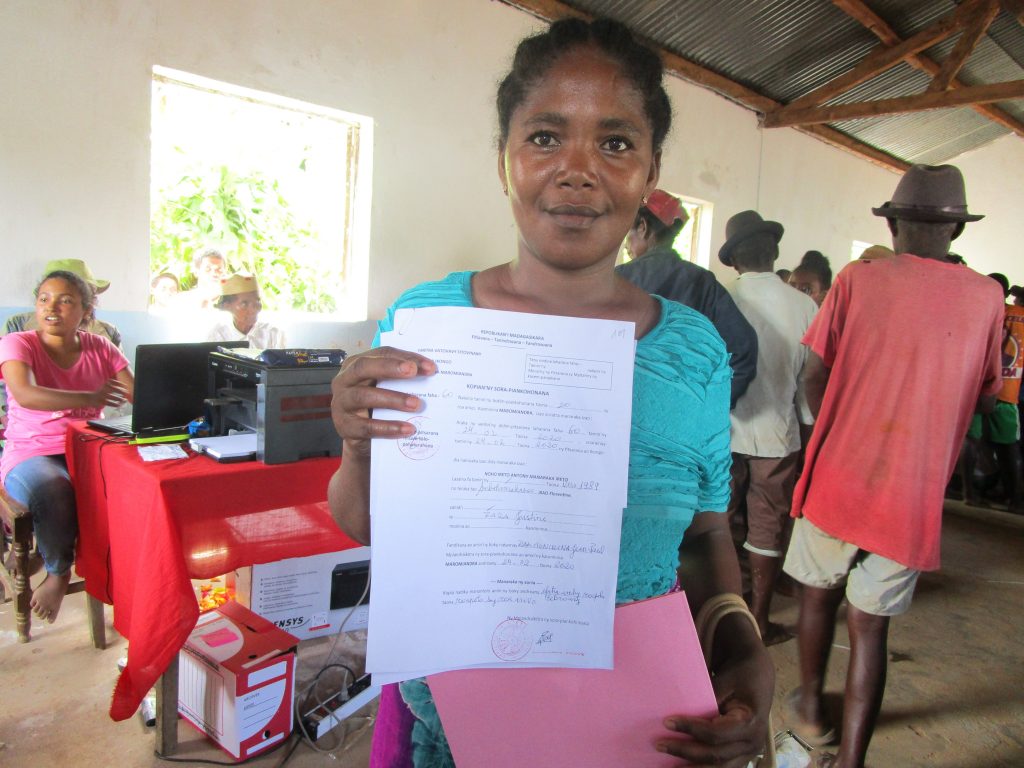
This project, funded by the Canada Funds for Local Initiatives (CFLI), aims to assist 3,000 vulnerable people in the Tolongoina, Ambinanitromby and Maromiandra rural municipalities to acquire birth certificates and ID cards between July 2019 and February 2020. At the same time, awareness will be raised to increase understanding of the importance of getting a birth certificate, and improve communication between local communities and authorities– paving the way to reversing trends of low rates of ID acquisition.
